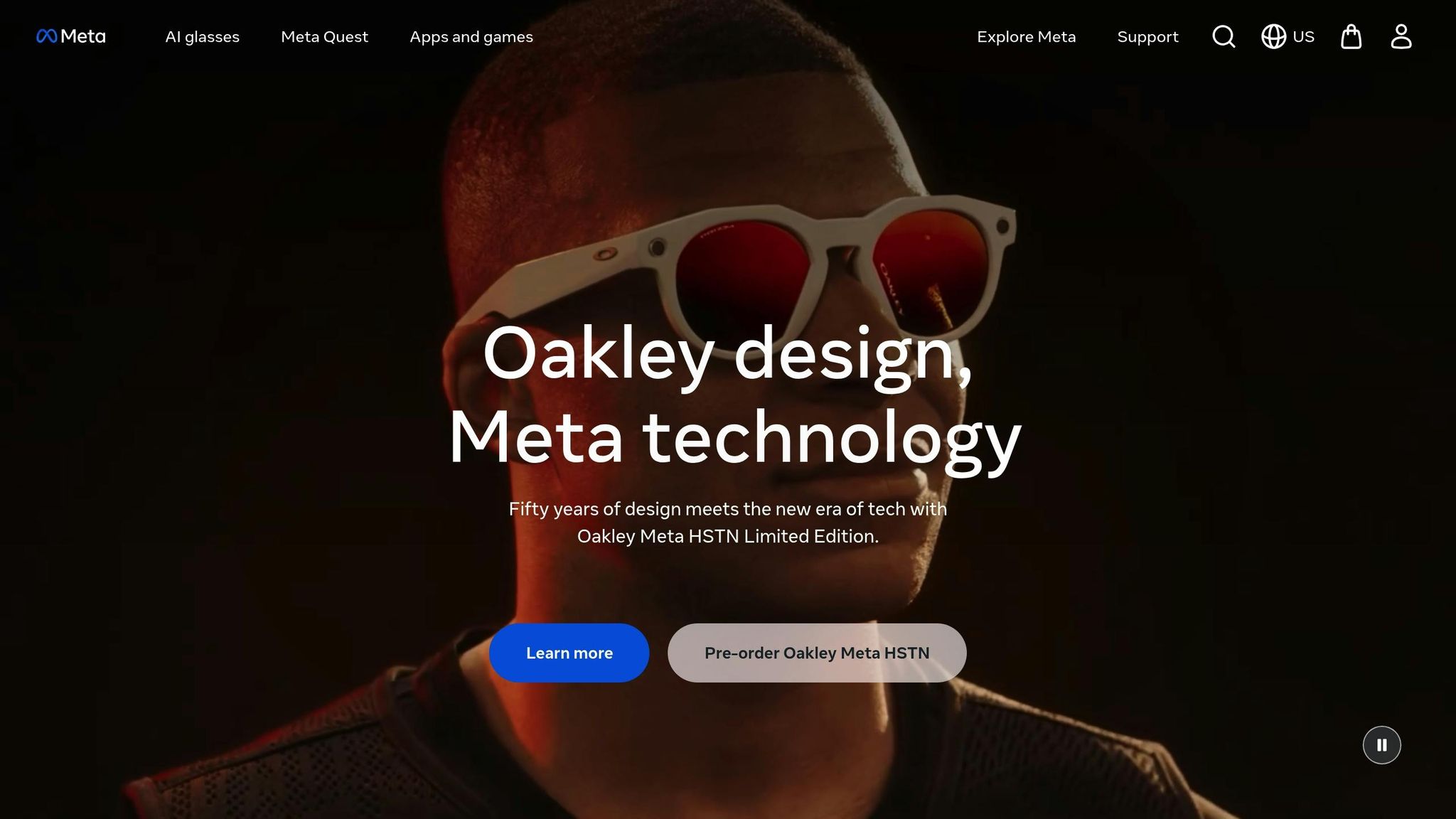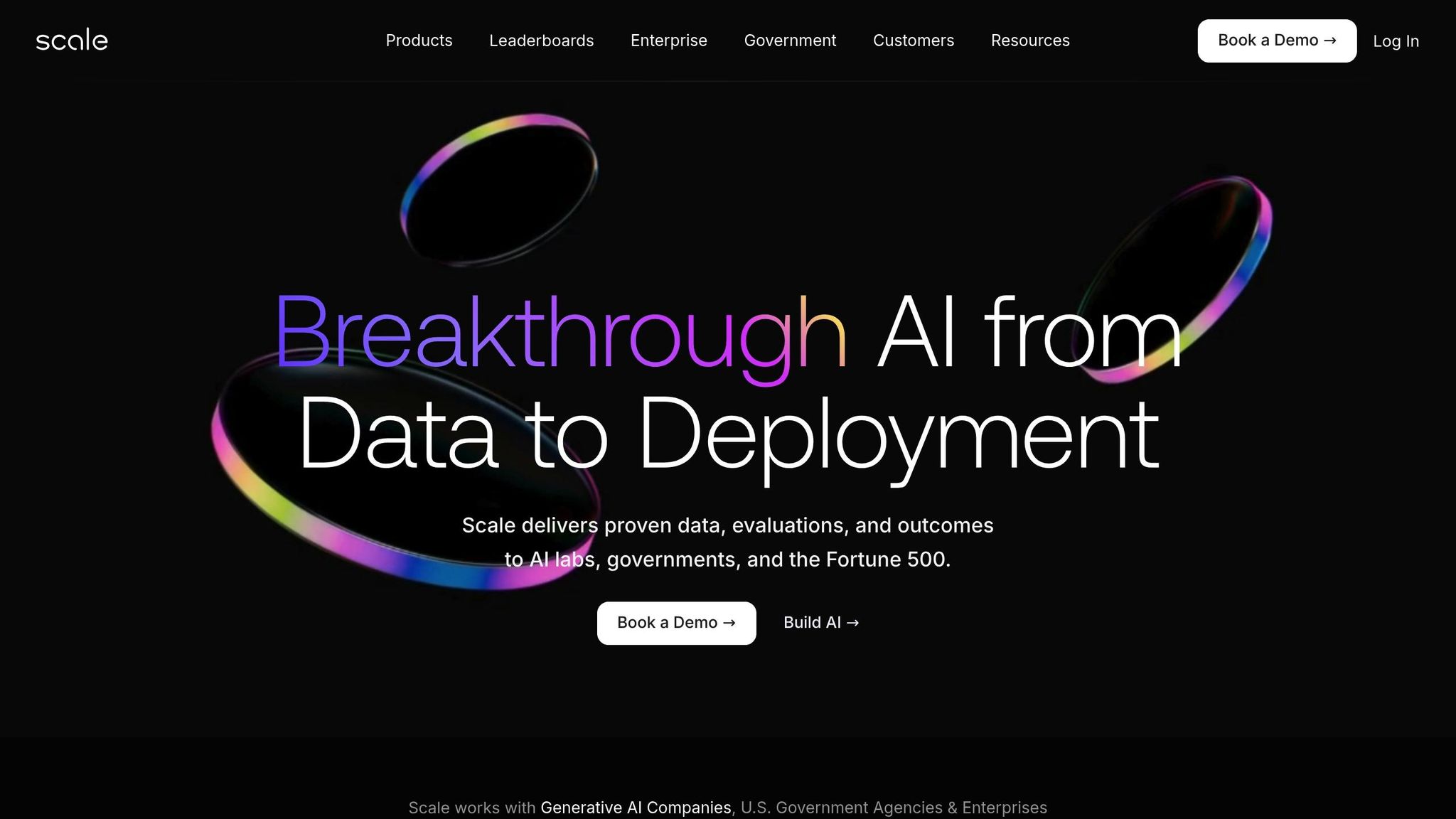No More Mr. Nice Zuck: $16.5B War Chest to Steal OpenAI's Crown - Altman's Not Happy!

Mark Zuckerberg is making a massive $16.5 billion bet to challenge OpenAI's dominance in artificial intelligence. Meta is funneling $14.3 billion into infrastructure, including a stake in Scale AI, and $2.1 billion into hiring top AI talent with offers as high as $300 million per person. The company plans to deploy 600,000 GPUs by the end of 2025, with a total capital expenditure of $64–72 billion this year. However, Meta faces challenges like talent retention, trust issues, and competition from early AI leaders like OpenAI. The next 18 months will determine whether Meta's bold gamble pays off or becomes a cautionary tale in the AI race.
Meta vs OpenAI: The $100M AI Talent War!

Meta's Problems: Playing Catch-Up in AI
Even with a hefty $16.5 billion budget, Meta faces challenges that money alone can't solve. Past missteps in AI strategy have created obstacles that continue to hinder its progress. These issues highlight the importance of building trust and gaining an early foothold in the competitive AI market.
Why AI Markets Favor Early Winners
In the AI space, being first gives companies a significant edge. Early movers benefit from advantages that grow over time, like access to proprietary data and continuous algorithm improvements through feedback loops. These are tough for latecomers like Meta to replicate.
The numbers paint a clear picture. According to McKinsey, 40% of global C-suite leaders expect AI to boost their revenue by more than 10% within three years. However, only 8% of companies qualify as high performers, generating at least 20% of their earnings before interest and taxes (EBIT) from AI.
"The tools and technologies that help deploy and scale AI projects are becoming much easier to access and use. This ease of AI means there's a definite first mover advantage that accrues to companies that dare and go full throttle on AI projects", says TechWire Asia.
Even tech giants struggle to keep up with agile startups. Take Perplexity AI, for example. In 2023, it hit over 10 million monthly active users in just six months by combining large language models with real-time data retrieval. They achieved this with a team of only 40 people and less than $100 million in funding - an impressive feat compared to Google's 180,000 employees and massive search infrastructure. The takeaway? Being first often outweighs being big.
Meta's $300M Per Person Talent Strategy
Meta's approach to hiring highlights the intense competition for top AI talent. The company is reportedly offering up to $300 million over four years to attract leading AI researchers from rivals. These aren't ordinary signing bonuses - they reflect just how scarce world-class talent has become.
Yet, Meta's retention rate tells another story. With only 64% of senior AI hires staying on board, more than a third eventually leave. When you're paying $300 million for someone who might not stick around, the financial math gets grim.
Meanwhile, OpenAI is taking steps to keep its talent from being poached. The company offers retention bonuses ranging from $1 to $2 million, and CEO Sam Altman has openly criticized Meta's hiring practices.
"What Meta is doing will, in my opinion, lead to very deep cultural problems", Altman said.
Mark Chen, OpenAI's chief research officer, went even further, likening Meta's hiring tactics to theft: "It feels like someone has broken into our home and stolen something".
Meta, however, disputes these claims. Spokesperson Andy Stone pushed back, stating: "These statements are untrue - the size and structure of these compensation packages have been misrepresented all over the place. Some people have chosen to greatly exaggerate what's happening for their own purposes".
Interestingly, some researchers are turning down Meta's offers. They don't want to become "talent nomads", constantly chasing the highest bidder. This indicates that Meta needs to offer more than just money - it has to provide a compelling reason for people to stay.
Overcoming Meta's Trust Issues
Meta's reputation is another hurdle. Years of privacy scandals and regulatory clashes have made it harder to attract both enterprise clients and top-tier talent.
The company's platforms also face criticism on safety metrics. Facebook and Instagram each scored 45% on LGBTQ safety in the 2025 GLAAD Social Media Safety Index, while Threads scored even lower at 40%.
"Not only are these platforms failing to enforce their own policies, but they're also actively making changes that worsen conditions for LGBTQ users", GLAAD reported.
Rebuilding trust isn't just about launching PR campaigns. It requires acknowledging past mistakes, addressing root causes, and demonstrating genuine change through action. Despite various efforts, Meta still struggles to shake its negative image.
The financial impact of these trust issues is significant. Meta's Reality Labs division posted a $4.2 billion loss in Q2 2025. Compare this to Microsoft's strategy with OpenAI. Instead of going it alone, Microsoft formed a partnership that boosted Azure's AI division revenue by 33%. By leveraging Azure's cloud infrastructure, Microsoft avoided the risks of directly competing with OpenAI's talent and technology.
For Meta, catching up with AI leaders isn't just about spending more. Training a single large AI model can cost up to $10 million, but rebuilding trust is a far more complex and long-term challenge.
How Meta Plans to Spend $16.5 Billion
Mark Zuckerberg has outlined a bold plan to allocate $16.5 billion across three key areas: AI infrastructure, top-tier research, and computing power. A significant $2.1 billion portion of this budget is earmarked for recruiting the elite AI talent necessary to drive these efforts forward.
The $14.3 Billion Investment in Scale AI

Meta's largest single move in this strategy was acquiring a 49% stake in Scale AI for $14.3 billion. This investment secures access to Scale AI's high-quality training data, which is essential for advancing AI technologies. Scale AI currently holds between 5% and 15% of the data labeling market, making it a pivotal player in the AI development space.
Interestingly, Meta broke the acquisition into smaller pieces to sidestep a Federal Trade Commission (FTC) review. Drayton D'Silva described this maneuver:
"Instead of outright acquisition that would trigger an FTC review, Meta split a Big Beautiful Deal into multiple smaller components that disassembled Scale, the independent company, and then reassembled Scale inside Meta's empire."
This strategic move came at a critical time. In mid-2025, other AI labs began distancing themselves from Scale AI over data privacy concerns, leading to delays and operational challenges. Meta also brought Scale AI's CEO, Alexandr Wang, on board as Chief AI Officer. This gave Meta exclusive access to Scale AI's data-labeling pipeline and reinforced its long-term AI ambitions.
Spending $2.1 Billion on AI Talent
Meta is aggressively recruiting top minds in the AI field. The company has successfully hired more than a dozen leading researchers from organizations like OpenAI, Google DeepMind, Anthropic, and Apple. Among these hires, notable names include Lucas Beyer, a computer vision expert from OpenAI, and Trapit Bansal, known for his work on AI reasoning models. Both joined Meta in mid-2025 to focus on entertainment AI and VR applications. Another high-profile recruit was Ruoming Pang, who previously led Apple's foundation models team and joined Meta in July 2025 with a reported offer worth tens of millions annually.
Meta's hiring priorities include roles in LLM fine-tuning, MLOps, and AI safety. These areas now account for 10–12% of all software jobs in the competitive AI market. These efforts align with Meta’s broader focus on entertainment AI, supporting products like Quest VR headsets and AI-enhanced Ray-Ban/Oakley glasses. The company is also forming specialized teams to drive advancements in VR/AR applications, advertising systems, and foundational AI models.
Building AI Products and Infrastructure
Beyond talent acquisition, Meta is making massive investments in hardware and data centers. The company plans to spend up to $65 billion in 2025 alone to expand its AI infrastructure, including building new data centers and deploying GPUs. By the end of 2025, Meta aims to have over 1.3 million graphics processors operational and to bring 1 gigawatt of computing power online. One of its data centers is expected to consume more than 2 gigawatts of power.
Mark Zuckerberg emphasized the importance of these efforts:
"This will be a defining year for AI. This is a massive effort, and over the coming years it will drive our core products and business."
In addition to traditional data centers, Meta is adopting faster, temporary structures to accelerate construction timelines. As Semianalysis noted:
"Inspired by xAI's unprecedented time-to-market, Meta is embracing a datacenter design that prioritizes speed above all else."
Meta is also pushing global connectivity through Project Waterworth, a subsea cable initiative spanning over 50,000 kilometers (around 31,000 miles) across five continents. These infrastructure projects are part of Meta's ultimate vision to develop "superintelligence" - machines capable of outperforming humans in a wide array of tasks. The company has restructured its AI teams to speed up product development and compete directly with leaders like OpenAI and Google.
Already, Meta's AI-driven advertising tools are delivering results, offering advertisers a 12% higher return on ad spend when using value optimization strategies compared to volume-based approaches.
sbb-itb-e464e9c
Meta vs OpenAI: Head-to-Head Comparison
The rivalry between Meta and OpenAI showcases two very different strategies in the race for AI dominance. OpenAI has captured attention with products like ChatGPT, while Meta is doubling down on its own aggressive plans to reshape the AI landscape.
OpenAI has focused on creating entirely new markets by introducing cutting-edge AI applications like chatbots and coding APIs. The company raised an unprecedented $40 billion in March 2025, hitting a valuation of $300 billion and projecting revenue to reach $12.7 billion. On the other hand, Meta initially concentrated on integrating AI into its existing products rather than venturing into new categories. However, after the lackluster performance of its Llama 4 model, Meta shifted gears, undertaking an ambitious "superintelligence" initiative. Mark Zuckerberg put it succinctly: "For our superintelligence effort, I'm focused on building the most elite and talent-dense team in the industry."
This shift has also intensified the competition for top talent. Meta is reportedly offering lucrative long-term packages to attract AI experts from competitors. The company has managed to retain 64% of its senior hires, even as the cost of training a single large AI model can reach $10 million.
Meta's infrastructure investments highlight its distinct approach. The upcoming Prometheus data center is set to house around 600,000 NVIDIA H100 GPUs, while the Hyperion cluster in Louisiana will require up to 5 gigawatts of power. These massive projects reflect Meta's commitment to achieving what some are calling "compute supremacy."
AI Strategy Comparison Table
| Factor | Meta | OpenAI |
|---|---|---|
| 2025 Funding/Investment | $16.5B war chest plus $64–72B capex | $40B funding round |
| Revenue Strategy | Enhance existing products for 3B+ users | Develop new AI product categories |
| AI Philosophy | Open-source combined with proprietary tech | Proprietary models |
| Key Advantage | Large user base and infrastructure scale | Early leadership in AI innovation |
| Biggest Risk | Execution complexity and talent challenges | Scaling while maintaining innovation |
A key difference lies in how each company allocates its resources. OpenAI prioritizes research and product development, while Meta is pouring money into infrastructure to fuel its AI ambitions. Pradeep Sanyal from Capgemini describes Meta's strategy as follows:
"Meta isn't just building data centers. It's building bargaining power. … Compute supremacy is now the new battleground for frontier AI. With gigawatt-scale clusters, Meta is buying its way into a class of infrastructure that only a handful of players can match. But scaling that kind of infrastructure is hard. Talent integration at this level is even harder. And alignment, safety and public trust will only get trickier the more power you throw at the system."
Meta's open-source approach, exemplified by Llama, contrasts sharply with OpenAI's proprietary model. By releasing advanced models for free, Meta aims to commoditize the AI space and encourage a broader developer ecosystem. However, critics argue that this openness might mislead regulators while simultaneously giving Meta significant sway over AI standards.
In leveraging its 3-billion-user base, Meta has built what it calls "an unrivaled proprietary data moat." OpenAI, by contrast, relies on curated datasets and partnerships to train its models. While Meta's data advantage offers deep insights into human behavior, it also raises concerns about privacy and ethical oversight.
Financially, Meta is all-in on AI. The company spent $43.87 billion on research and development in 2024, accounting for 27.03% of its revenue. Its strong advertising business continues to generate the cash flow needed to fund these efforts. OpenAI, despite its rapid revenue growth, still depends heavily on external funding to maintain its pace of innovation.
Both companies face steep challenges. OpenAI must find ways to scale without losing its innovative edge. Meanwhile, Meta has to successfully integrate new talent and execute massive infrastructure projects to turn its AI investments into tangible business outcomes.
What Meta's AI Push Means for Business
Meta's significant investments in artificial intelligence are reshaping how businesses approach AI strategies. As Mark Zuckerberg channels resources to dominate the AI space, Karl Freund from Cambrian AI Research points out that this move reflects a global shift in business priorities.
Meta is expected to allocate nearly $70 billion this year, signaling how critical AI has become to its operations. A key part of this strategy is its partnership with Scale AI, emphasizing the importance of acquiring high-quality training data. By addressing the challenge of specialized and refined datasets, Meta is building a stronger AI infrastructure, which is essential for improving system performance. This move also pushes other businesses to rethink how they source and label data, especially as market dynamics may shift if Scale AI's major clients start exploring other providers.
How This Changes AI Product Development
Meta's focus on premium data services tackles the ongoing shortage of quality training data while setting a new benchmark for AI product development. This approach makes it clear that data preparation is no longer a secondary task - it must become a central part of innovation and competition strategies.
Digital Transformation Lessons for Companies
Meta's strategy highlights three key takeaways for businesses aiming to succeed in their digital transformation efforts:
- Invest in strong infrastructure
- Recruit top-tier AI talent
- Develop a purpose-driven strategy
In fact, Gartner predicts that by 2026, over 100 million people will be using generative AI in their workplaces, underscoring the need for companies to make thoughtful and strategic AI investments now.
Bonanza Studios: AI-Powered Business Solutions

Bonanza Studios applies these lessons to help businesses achieve their digital transformation goals. For instance, our AI‑Native Needs Living UX service is designed to create user-centric solutions that are built specifically for AI, ensuring they are proactive, adaptive, and seamlessly integrated.
Our Generative AI and Agentic AI App Builder offers hyper-personalized customer experiences without the delays of traditional development cycles.
Additionally, our Digital Transformation Services focus on modernizing businesses' digital foundations. By combining strategic research, user-focused design, and agile development, we create enterprise-ready, AI-driven solutions. Partnering with Bonanza Studios eliminates the need to build and train in-house teams, allowing businesses to fast-track their journey into AI innovation.
"As the pace of AI progress accelerates, developing superintelligence is coming into sight. I believe this will be the beginning of a new era for humanity, and I am fully committed to doing what it takes for Meta to lead the way." – Mark Zuckerberg
Meta’s combination of financial investment and strategic foresight sets a new standard for AI transformation - one that businesses should take into account as they plan for the future.
What Happens Next for Meta and AI
Meta's $16.5 billion investment in artificial intelligence is one of the boldest moves we've seen in the tech world. The outcome of this gamble could either solidify Mark Zuckerberg's resurgence as a tech leader or serve as a cautionary tale about entering the AI race later than competitors. Regardless of the result, the ripple effects are likely to influence how other major companies approach AI investments and competition strategies.
Meta's Chances in the AI Race
Meta's position in the AI race is both challenging and promising. The company has the financial resources and leadership drive to challenge OpenAI's dominance, but the real question is whether Meta can execute its plans effectively without exhausting its resources.
The numbers highlight the scale of the challenge. Meta’s capital expenditures are expected to hit nearly $70 billion this year, with an additional $30 billion potentially borrowed to fund its AI initiatives. This level of investment could become a strain if these projects don’t deliver returns quickly.
Meta is also offering highly competitive compensation packages, with annual salaries ranging from $1 million to $1.4 million. However, this alone doesn’t solve the issue of attracting and retaining top talent. The competition for AI experts is fierce. OpenAI's Global Affairs Team recently noted:
"Some substantial offers are being extended these days to a handful of terrifically talented researchers, including to folks at OpenAI. Some of these offers are coming with deadlines of just a few hours – literally 'exploding offers' – or with restrictions on whether or how they can be discussed."
Talent retention is another hurdle. OpenAI has a retention rate of 67%, slightly ahead of Meta’s 64%, while Anthropic leads with an impressive 80%. Engineers are significantly more likely to leave OpenAI or DeepMind for Anthropic, with movement rates eight and eleven times higher, respectively.
Beyond talent, regulatory challenges loom large for Meta, especially in Europe. Strict data protection laws could hinder the deployment of its AI solutions. Additionally, successfully integrating acquired technologies and teams - a task that has tripped up many companies in the past - is another major obstacle.
These hurdles illustrate the broader shifts happening in business technology, where success depends on more than just financial muscle.
The Future of AI and Business Technology
The challenges Meta faces are reshaping the landscape of AI and business technology. A new era is emerging, defined by massive investments in AI infrastructure as companies vie for market leadership over the next decade.
One of Meta’s key projects is Hyperion, a new data center in Louisiana designed to provide 5 gigawatts of computing power for its AI lab. This is part of a broader trend that could see data centers consuming 20% of U.S. electricity by 2030, compared to just 2.5% in 2022.
This infrastructure race is not just about hardware; it’s redefining how businesses think about technology investments. As NVIDIA CEO Jensen Huang explained:
"AI now automates coding, analysis, and strategy, erasing roles these companies once prized."
The demand for specialized skills is another driving force behind these changes. Companies that fail to adapt quickly risk being left behind in this rapidly evolving market.
For businesses observing these developments, Meta’s strategy offers both inspiration and a stark warning. While its aggressive spending underscores the high stakes of the AI race, it also highlights that success requires more than money. It demands the right alignment of company culture, strategic planning, and a long-term vision.
The stakes couldn’t be higher for Meta. As Mark Zuckerberg put it:
"The pace of progress across the industry and the opportunities ahead for us are staggering. I want to make sure that we're working aggressively and efficiently, and I also want to make sure that we are building out the leading infrastructure and teams we need to achieve our goals."
The next 18 months will be critical in determining whether Meta’s massive bet pays off. If it succeeds, other major corporations will likely follow with similarly bold investments. If it fails, it will serve as a costly lesson on the risks of trying to buy leadership in the AI space.
FAQs
What challenges does Meta face in trying to surpass OpenAI in the AI industry?
Meta is navigating a tough road in its quest to surpass OpenAI in the AI industry. One of the biggest challenges is the intense competition for highly skilled AI professionals. With demand soaring, hiring and keeping top talent has become both costly and fiercely competitive. On top of that, Meta faces substantial financial risks, having already poured billions into acquisitions and recruitment efforts.
Another significant hurdle is catching up to OpenAI's advanced technologies and its well-established foothold in the market. To compete, Meta must not only innovate at a rapid pace but also tackle the complexities of scaling AI in a responsible way. While these challenges are daunting, Meta’s ambitious approach underscores its determination to reclaim a leading role in the AI space.
How does Meta's AI investment strategy differ from OpenAI's approach?
Meta is taking a bold approach to reestablish its presence in the AI field by pouring billions into building massive AI infrastructure. This includes cutting-edge data centers and hiring some of the best minds in the industry to strengthen its AI capabilities.
On the other hand, OpenAI is charting a different course, relying heavily on strategic partnerships to access the computing power it needs. The company also emphasizes attracting top talent to fuel innovation. While Meta's strategy hinges on heavy investments in infrastructure and resources, OpenAI focuses on collaboration and adaptability to remain a key player in the fast-changing world of AI.
How could Meta's aggressive investment in AI influence the tech industry and business strategies?
Meta's ambitious $16.5 billion investment in artificial intelligence is poised to shake up the tech world in a big way. By focusing on advanced technology and bringing in some of the brightest minds in the field, Meta is positioning itself to redefine areas like automation, personalized advertising, and social media tools.
This move is likely to heat up competition among tech giants, prompting companies to re-evaluate their strategies and pour more resources into AI initiatives. The ripple effect could drive quicker integration of AI across various industries, transforming how businesses function and connect with their audiences.
